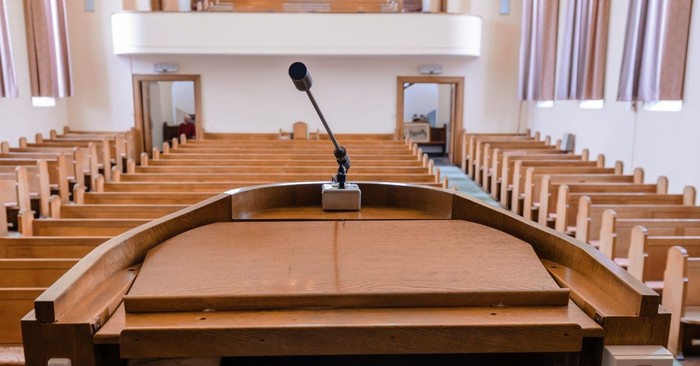
Pastors are struggling with burnout and discouragement at historic levels.
Every year, October is observed as Pastor Appreciation Month. It’s a great time to be more intentional about expressing our gratitude for the generous commitment of our ministry leaders. While an encouraging note or a special offering is of value, studies have shown that what our pastors might benefit from the most is our help in meeting the needs of the Church body.
Pastors are struggling with burnout and discouragement at historic levels. Last year, Barna reported that the percentage of pastors who considered quitting full-time ministry within the year prior had risen to a startling 42%. That’s up sharply from the 29% reported in January 2021. Among other concerning statistics, 51% say they're tired, 68% say they're overwhelmed, and 52% say they're lonely.
The significant decline in the mental health of our pastors and ministry leaders is not only unprecedented, but it signals a crisis that the Church needs to address. It’s critical that we embolden the body of Christ to relieve some of the burden on our pastors who are collapsing under the weight of the needs of their congregations. If sufficiently equipped, the Church can help alleviate pastor burnout by working together to meet the practical, tangible needs of fellow believers rooted in faith and a community of support.
The Deacon Model
The Bible urges us to bear one another’s burdens and to hurt alongside those who are hurting. With this in mind, it’s time to resurrect the deacon model that was demonstrated in Acts 6, when Stephen and six other wise and compassionate individuals were appointed to serve as deacons, entrusted with the responsibility of connecting needs to resources. This ancient practice is an important component of the Church being the Church.
For the first body of believers, deacons played a crucial role in the life and the health of the church. Acts 6:1-6 tells us the apostles, or elders, were devoted “to prayer and to the ministry of the word” (v. 4). Since this was their primary calling, the seven men were chosen to handle more practical matters to allow the apostles the freedom to concentrate on their primary calling.
Whether we call them deacons, serving volunteers, or small group leaders, their role is to take care of the physical and tangible needs of the church. Some people mistakenly view serving meals, managing budgets, caring for widows, or building maintenance as “lesser tasks.” But when the apostles called forth those seven men, they saw something of great value — a strong force for good, vital to the ministry.
We know how much they valued their work because of the kind of men they appointed: “Pick out from among you seven men of good repute, full of the Spirit and of wisdom, whom we will appoint to this duty” (Acts 6:3). They were men of character, discernment, and faithfulness, positioned to be the hands and feet of the Church.
The New Testament specifically outlines the qualifications for deacons in 1 Timothy 3:8-13, each of which is closely connected to their responsibilities. Deacons are called to serve in areas like finances (1 Tim. 3:8), administration (1 Tim. 3:12), visitation (1 Tim. 3:11), and ministering to the other needs of the church family (Acts 6:1-4). By handling such matters, they enable pastors to focus on the roles of teaching and equipping the congregation while people in the church take care of each other.
Has God gifted you in areas of service or given you an abundance of resources beyond the needs of your family? Acts 6:7 tells us that after the deacon ministry was implemented, “the word of God continued to increase, and the number of disciples multiplied greatly.”
Helping to carry the weight of the congregation’s needs is one of the most important practical duties that should be important to every Christian – and could be the answer to protecting and uplifting pastors who are suffering.
The views expressed in this commentary are not necessarily those of Christian Headlines.
Photo Courtesy: ©GettyImages/Stephen Barnes
Brandon Harvath serves as the President and Chief Executive Officer of Christian Care Ministry (CCM), the nonprofit 501(c)(3) association of churches that manages Medi-Share. CCM believes that we should reclaim the biblical mandate to care and provide for our brothers and sisters in Christ. A homeschooling father of seven, Harvath is passionate about family, and the freedom to choose educational and healthcare options that align with faith and values.
LISTEN: How United Should the Global Church Be?
The views and opinions expressed in this podcast are those of the speakers and do not necessarily reflect the views or positions of Salem Web Network and Salem Media Group.
WATCH: 5 Signs Your Church Might Be Heading Toward Progressive Christianity
Stock Footage & Music Courtesy of Soundstripe.com Thumbnail by Getty Images








